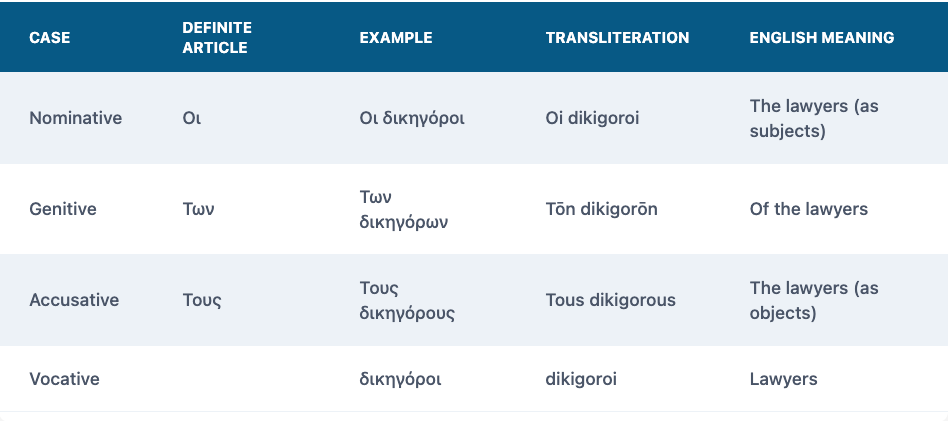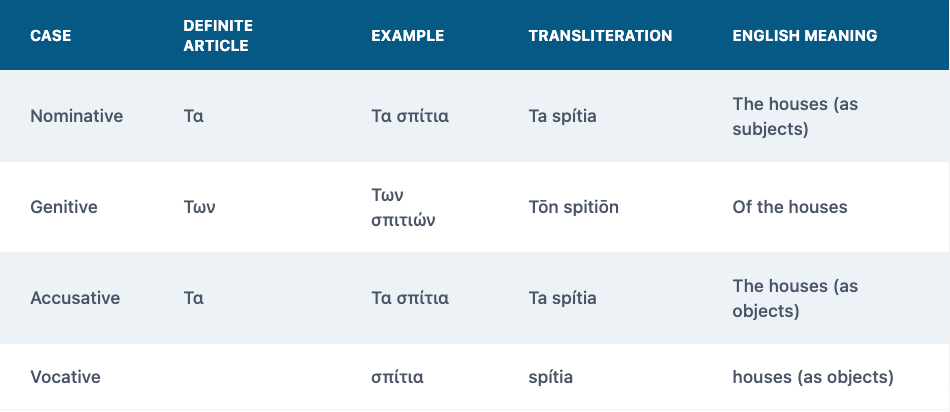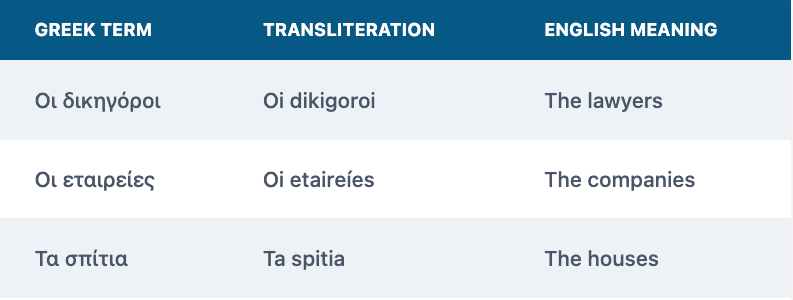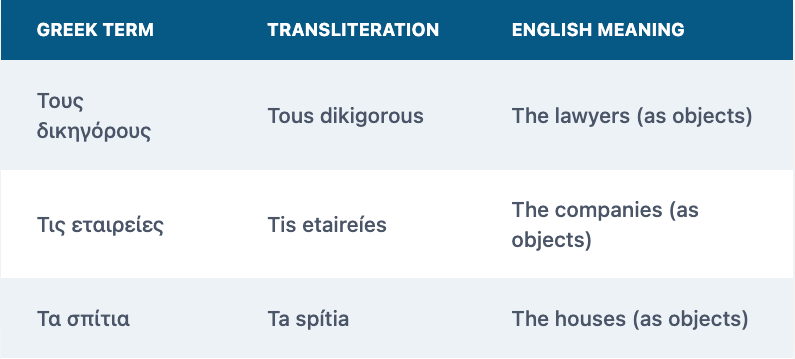Greek Cases in Greek: Plural Forms
Continue your journey into Greek grammar with the plural forms of Greek cases.
In the first part of this series(opens in a new window), we covered the singular forms of Greek cases. Now, it's time to explore the plural forms. Knowing the plural forms is equally essential to mastering Greek grammar and fully understanding sentences.
Overview of Plural Forms in Greek Cases
Just like the singular forms, Greek plural nouns, pronouns, and adjectives can change based on their role in a sentence. The four primary Greek cases in plural forms are:
Nominative: Subjects of the sentence.
Genitive: Possession or belonging.
Accusative: Direct objects of a verb.
Vocative: Direct address.
Articles by Gender and Case in Plural
Here's how the definite articles change based on the case, number, and gender of the noun in plural forms.
Masculine Gender
Feminine Gender
Neuter Gender
Practical Examples
Nominative Case in Plural
In the nominative case, the word typically acts as the subject of the sentence.
Example Sentence
Greek Sentence: Οι δάσκαλοι διδάσκουν τα μαθήματα.
Transliteration: Oi dáskaloi didáskoun ta mathímata.
English Translation: The teachers are teaching the lessons.
In the sentence "Οι δάσκαλοι διδάσκουν τα μαθήματα," "Οι δάσκαλοι" (Oi dáskaloi) serves as the subject of the verb "διδάσκουν" (didáskoun), which means "are teaching."
The word "Οι δάσκαλοι" is in the Nominative plural case, indicating that it is the subject of the sentence.
If you were to ask the question "Who are teaching the lessons?", the answer would be "the teachers," corresponding to the Nominative plural case noun "Οι δάσκαλοι."
Genitive Case in Plural
The genitive case shows possession or belonging.
Example Sentence
Greek Sentence: Τα μαθήματα των δασκάλων είναι δύσκολα.
Transliteration: Ta mathímata tōn daskálōn eínai dýskola.
Literal Translation: The lessons of the teachers are difficult.
In the sentence "Τα μαθήματα των δασκάλων είναι δύσκολα," "των δασκάλων" (tōn daskálōn) serves to specify the ownership or source of "τα μαθήματα" (ta mathímata), which means "the lessons."
The phrase "των δασκάλων" is in the Genitive plural case, indicating that it is describing the ownership or source of "the lessons."
If you were to ask the question "Whose lessons are difficult?", the answer would be "of the teachers," corresponding to the Genitive plural case noun "των δασκάλων."
Accusative Case in Plural
The accusative case is generally used for the direct object of a verb. The direct object is usually in the Accusative case, and to find it we ask 'what?'.
Example Sentence
Greek Sentence: Ο Πέτρος διαβάζει το βιβλίο.
Transliteration: O Petros thiavazei to vivlio.
English Translation: Peter is reading the book.
In the sentence “Ο Πέτρος διαβάζει το βιβλίο”, "το βιβλίο" (to vivlio) serves as the direct object of the verb "διαβάζει" (diavazei), which means "is reading."
If you were to ask the question "What is Peter reading?", the answer would be "the book," corresponding to the Accusative singular case noun "το βιβλίο."
Common Mistakes to Avoid
Case Confusion: The case of the noun should match its role in the sentence.
Article Errors: The definite article is equally important in plural forms. Make sure you're using the correct one.
Stay tuned for more articles on Greek grammar, culture and vocabulary.
Happy learning!









